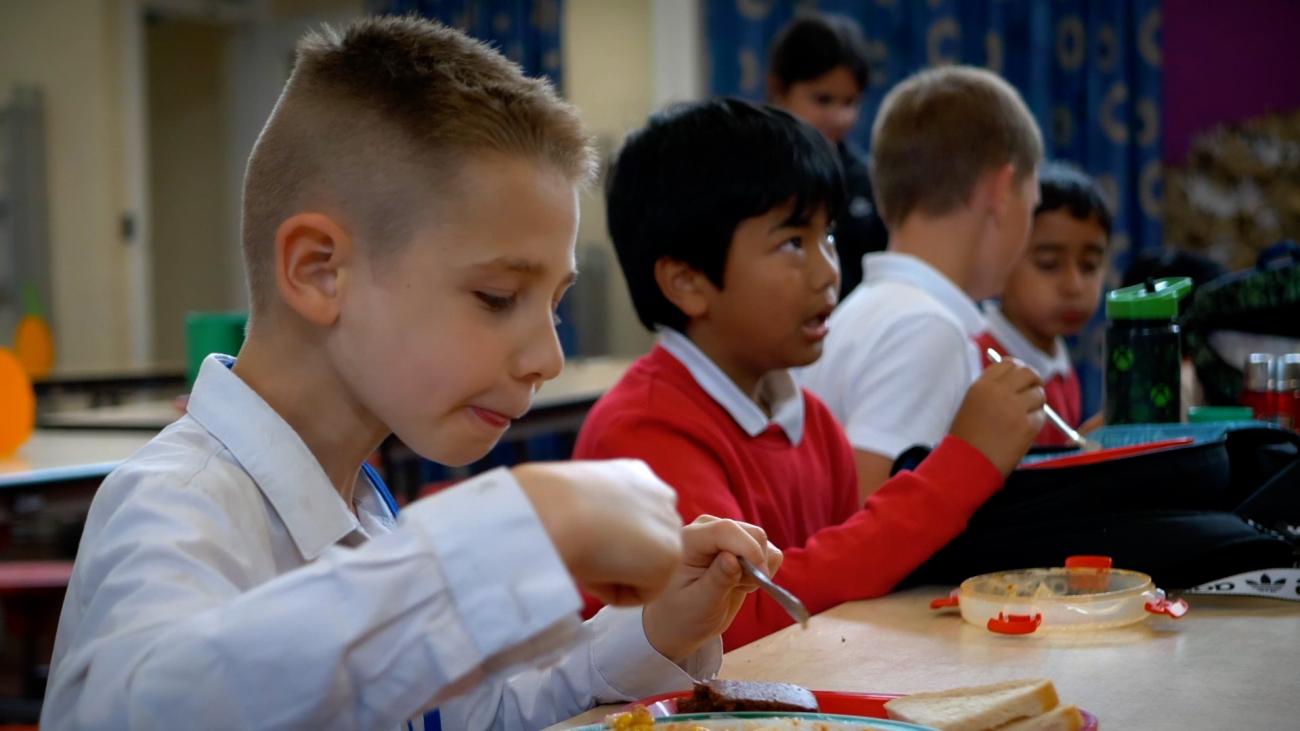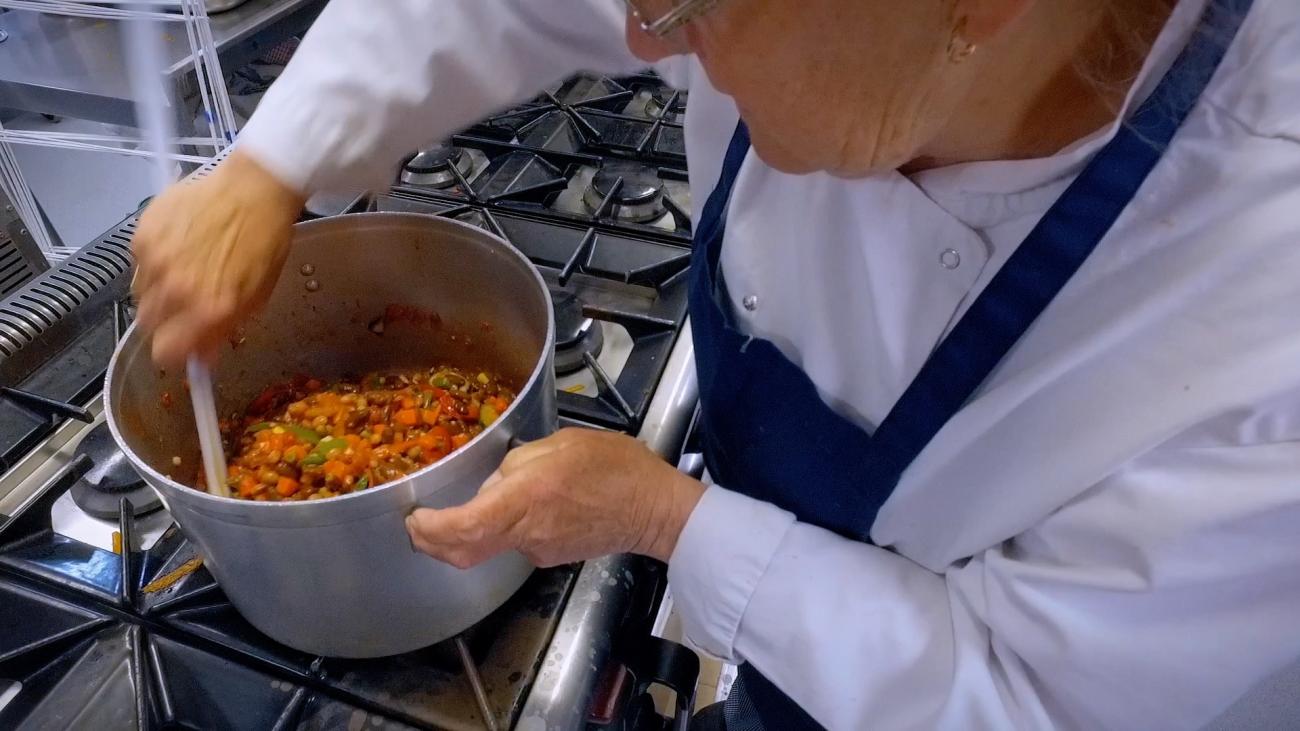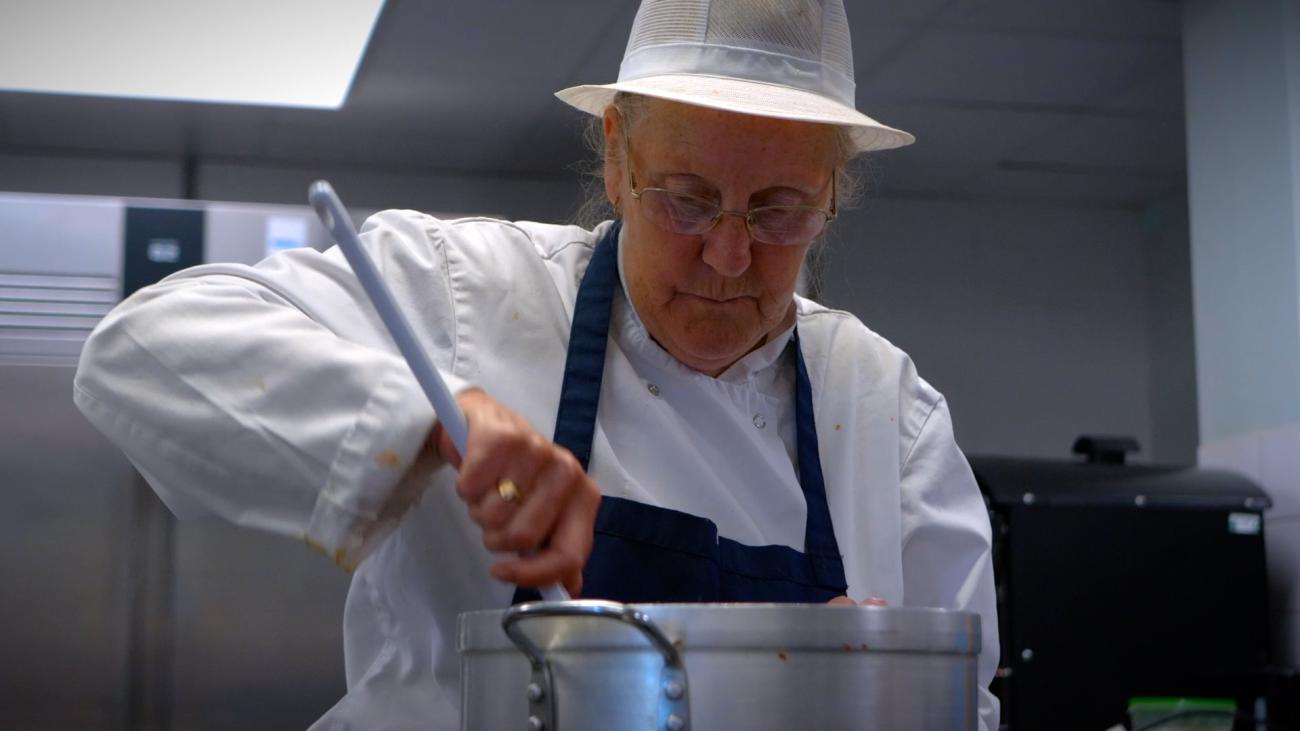On World Pulses Day, BeanMeals, a research project based at the Environmental Change Institute, University of Oxford, has produced a guide for taking a holistic approach when creating healthy and sustainable school menus that children enjoy.
Transforming school food for the better is based on BeanMeals’s work with six primary schools in Leicestershire County and Leicester City to investigate how to achieve diets that are healthier, have lower environmental impacts and support enterprise. The project featured two quick-cooking navy bean varieties that have been developed for UK growing conditions by the University of Warwick, Capulet and Godiva.

The guide features tips for taking a whole-school approach and covers procurement as well as simple steps schools can take independently.
The research in schools was led by the University of Liverpool. In the six primary schools, staff from different areas – including catering staff and lunchtime supervisors, teaching staff and senior leaders – worked with the BeanMeals team to create a whole-school approach to trialing specially created bean-based meals.
Project partners from Food for Life Soil Association developed classroom curriculum materials. They also trained teachers, midday supervisors and school cooks to further their knowledge around cooking with beans, linking to the curriculum and bean-growing activities.
A BeanMeals engagement officer led sessions with the pupils to encourage them to feel excited about trying unfamiliar foods, and University of Liverpool researchers led a mixed-methods evaluation to understand the impact of the project on children and school staff.
Dr John Ingram, BeanMeals project lead and Senior Researcher at the Environmental Change Institute, said:
One of our project aims was to test the acceptability of the beans as an unfamiliar food. Helping a range of staff who interact with pupils during the school day to better understand the benefits of the beans for both health and the environment had a positive impact on how enthusiastic the children were about trying the bean meals. Parents were also included in the research activities to help embed positive messages around healthy foods at home.
“For example, we found that ensuring good communication with the catering staff led to more creativity in how the beans were used in meals. We were really impressed at the variety of excellent meals that were served in all six schools.”

Professor Charlotte Hardman, lead for the schools-based work and Professor of Psychology of Eating Behaviour at the University of Liverpool, said:
BeanMeals highlights the power of a whole-school approach to healthy sustainable food and the key importance of actively involving pupils and school staff throughout the process. The fun and engaging activities increased children’s curiosity about food, and they were then more willing to try new and unfamiliar foods."
Read the report in full: Transforming school food for the better



